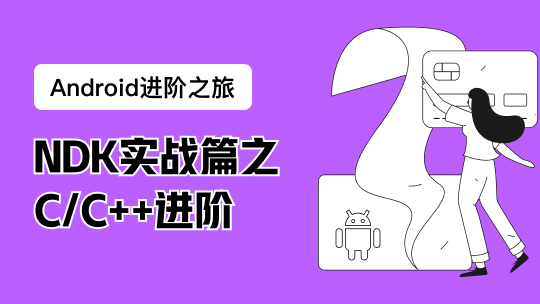参考:https://www.runoob.com/design-pattern/design-pattern-tutorial.html
参考:https://blog.csdn.net/liang19890820/article/details/66974516
设计模式就是指面向对象编程中面多众多的实践中而发展总结出来的很多精华的特定
的代码组织方式。使用这些方式可以使你更加科学合理、高效的管理和组织你的代码。
代码好比你的千军万马,设计模式好比你的指挥体系。
总原则:看看就好
6大原则(六脉神剑):看看就好
1、开闭原则(Open Close Principle)
开闭原则的意思是:对扩展开放,对修改关闭。在程序需要进行拓展的时候,不能去修改原有的代码,实现一个热插拔的效果。简言之,是为了使程序的扩展性好,易于维护和升级。想要达到这样的效果,我们需要使用接口和抽象类,后面的具体设计中我们会提到这点。
2、里氏代换原则(Liskov Substitution Principle)
里氏代换原则是面向对象设计的基本原则之一。 里氏代换原则中说,任何基类可以出现的地方,子类一定可以出现。LSP 是继承复用的基石,只有当派生类可以替换掉基类,且软件单位的功能不受到影响时,基类才能真正被复用,而派生类也能够在基类的基础上增加新的行为。里氏代换原则是对开闭原则的补充。实现开闭原则的关键步骤就是抽象化,而基类与子类的继承关系就是抽象化的具体实现,所以里氏代换原则是对实现抽象化的具体步骤的规范。
3、依赖倒转原则(Dependence Inversion Principle)
这个原则是开闭原则的基础,具体内容:针对接口编程,依赖于抽象而不依赖于具体。
4、接口隔离原则(Interface Segregation Principle)
这个原则的意思是:使用多个隔离的接口,比使用单个接口要好。它还有另外一个意思是:降低类之间的耦合度。由此可见,其实设计模式就是从大型软件架构出发、便于升级和维护的软件设计思想,它强调降低依赖,降低耦合。
5、迪米特法则,又称最少知道原则(Demeter Principle)
最少知道原则是指:一个实体应当尽量少地与其他实体之间发生相互作用,使得系统功能模块相对独立。
6、合成复用原则(Composite Reuse Principle)
合成复用原则是指:尽量使用合成/聚合的方式,而不是使用继承。
总共氛围以下3大类:
1、Creational - 创建型模式
工厂模式(Factory Pattern)
// Factory.cpp : 定义控制台应用程序的入口点。
// 简单工厂模式
#include "stdafx.h"
#include<iostream>
using namespace std;
class Product
{
public:
virtual void show() = 0;
};
class Product_A : public Product
{
public:
void show()
{
cout << "Product_A" << endl;
}
};
class Product_B : public Product
{
public:
void show()
{
cout << "Product_B" << endl;
}
};
class Factory
{
public:
Product* Create(int i)
{
switch (i)
{
case 1:
return new Product_A;
break;
case 2:
return new Product_B;
break;
default:
break;
}
}
};
int main()
{
Factory *factory = new Factory();
factory->Create(1)->show();
factory->Create(2)->show();
system("pause");
return 0;
}
//工厂模式
#include "stdafx.h"
#include<iostream>
using namespace std;
class Product
{
public:
virtual void show() = 0;
};
class Product_A : public Product
{
public:
void show()
{
cout << "Product_A" << endl;
}
};
class Product_B : public Product
{
public:
void show()
{
cout << "Product_B" << endl;
}
};
class Factory
{
public:
virtual Product* create() = 0;
};
class Factory_A : public Factory
{
public:
Product* create()
{
return new Product_A;
}
};
class Factory_B : public Factory
{
public:
Product* create()
{
return new Product_B;
}
};
int main()
{
Factory_A* productA = new Factory_A();
Factory_B* productB = new Factory_B();
productA->create()->show();
productB->create()->show();
system("pause");
return 0;
}
抽象工厂模式(Abstract Factory Pattern)
//抽象工厂模式
#include <iostream>
using namespace std;
//定义抽象类
class product1
{
public:
virtual void show() = 0;
};
//定义具体类
class product_A1 :public product1
{
public:
void show(){ cout << "product A1" << endl; }
};
class product_B1 :public product1
{
public:
void show(){ cout << "product B1" << endl; }
};
//定义抽象类
class product2
{
public:
virtual void show() = 0;
};
//定义具体类
class product_A2 :public product2
{
public:
void show(){ cout << "product A2" << endl; }
};
class product_B2 :public product2
{
public:
void show(){ cout << "product B2" << endl; }
};
class Factory
{
public:
virtual product1 *creat1() = 0;
virtual product2 *creat2() = 0;
};
class Factory1 : public Factory
{
public:
product1 *creata(){ return new product_A1(); }
product2 *creatb(){ return new product_B1(); }
};
class Factory2 : public Factory
{
public:
product1 *creata(){ return new product_A2(); }
product2 *creatb(){ return new product_B2(); }
};
int main()
{
Factory *factory1 = new Factory1();
factory1->creata()->show();
factory1->creatb()->show();
Factory *factory2 = new Factory2();
factory2->creata()->show();
factory2->creatb()->show();
return 0;
}
单例模式(Singleton Pattern)
建造者模式(Builder Pattern)
原型模式(Prototype Pattern)
2、Structural - 结构型模式
适配器模式(Adapter Pattern)
桥接模式(Bridge Pattern)
过滤器模式(Filter、Criteria Pattern)
组合模式(Composite Pattern)
装饰器模式(Decorator Pattern)
外观模式(Facade Pattern)
享元模式(Flyweight Pattern)
代理模式(Proxy Pattern)
3、Behavioral - 行为型模式
责任链模式(Chain of Responsibility Pattern)
命令模式(Command Pattern)
解释器模式(Interpreter Pattern)
迭代器模式(Iterator Pattern)
中介者模式(Mediator Pattern)
备忘录模式(Memento Pattern)
观察者模式(Observer Pattern)
// subject.h
#ifndef SUBJECT_H
#define SUBJECT_H
class IObserver;
// 抽象主题
class ISubject
{
public:
virtual void Attach(IObserver *) = 0; // 注册观察者
virtual void Detach(IObserver *) = 0; // 注销观察者
virtual void Notify() = 0; // 通知观察者
};
#endif // SUBJECT_H
// concrete_subject.h
#ifndef CONCRETE_SUBJECT_H
#define CONCRETE_SUBJECT_H
#include "subject.h"
#include "observer.h"
#include <iostream>
#include <list>
using namespace std;
// 具体主题
class ConcreteSubject : public ISubject
{
public:
ConcreteSubject() { m_fPrice = 10.0; }
void SetPrice(float price) {
m_fPrice = price;
}
void Attach(IObserver *observer) {
m_observers.push_back(observer);
}
void Detach(IObserver *observer) {
m_observers.remove(observer);
}
void Notify() {
list<IObserver *>::iterator it = m_observers.begin();
while (it != m_observers.end()) {
(*it)->Update(m_fPrice);
++it;
}
}
private:
list<IObserver *> m_observers; // 观察者列表
float m_fPrice; // 价格
};
#endif // CONCRETE_SUBJECT_H
// observer.h
#ifndef OBSERVER_H
#define OBSERVER_H
// 抽象观察者
class IObserver
{
public:
virtual void Update(float price) = 0; // 更新价格
};
#endif // OBSERVER_H
// concrete_observer.h
#ifndef CONCRETE_OBSERVER_H
#define CONCRETE_OBSERVER_H
#include "observer.h"
#include <iostream>
#include <string>
using namespace std;
// 具体观察者
class ConcreteObserver : public IObserver
{
public:
ConcreteObserver(string name) { m_strName = name; }
void Update(float price) {
cout << m_strName << " - price: " << price << "\n";
}
private:
string m_strName; // 名字
};
#endif // CONCRETE_OBSERVER_H
// main.cpp
#include "concrete_subject.h"
#include "concrete_observer.h"
#ifndef SAFE_DELETE
#define SAFE_DELETE(p) { if(p){delete(p); (p)=NULL;} }
#endif
int main()
{
// 创建主题、观察者
ConcreteSubject *pSubject = new ConcreteSubject();
IObserver *pObserver1 = new ConcreteObserver("Jack Ma");
IObserver *pObserver2 = new ConcreteObserver("Pony");
// 注册观察者
pSubject->Attach(pObserver1);
pSubject->Attach(pObserver2);
// 更改价格,并通知观察者
pSubject->SetPrice(12.5);
pSubject->Notify();
// 注销观察者
pSubject->Detach(pObserver2);
// 再次更改状态,并通知观察者
pSubject->SetPrice(15.0);
pSubject->Notify();
SAFE_DELETE(pObserver1);
SAFE_DELETE(pObserver2);
SAFE_DELETE(pSubject);
getchar();
return 0;
}
状态模式(State Pattern)
空对象模式(Null Object Pattern)
策略模式(Strategy Pattern)
模板模式(Template Pattern)
访问者模式(Visitor Pattern








